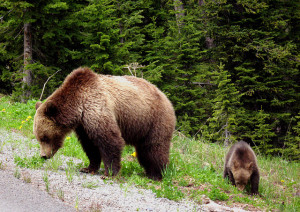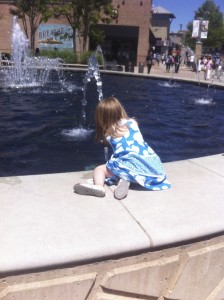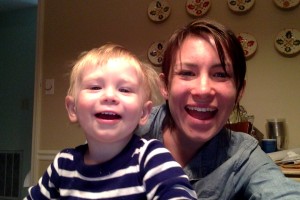If you had told my seventeen-year-old self what she would grow up to be, I think she might have cried. But then again, she never knew half as much as she supposed.
It all began early. In second grade I was set apart as “gifted.” Practically, this meant I stood waiting in the school stairwell on Thursday mornings, with a little boy name Todd, and a mini-bus came and delivered us to a neighboring school. It was the best part of my week. There, waiting in the library, were several other children, word puzzles, art materials, floppy disks labeled “Oregon Trail” and “Turtle LOGO”, and a magical teacher who made learning seem like play.
As school progressed, I rode the wave of privileges and honors. When I was in fifth grade, they let me assist the kindergarten teacher, in junior high I chose among special electives that were only available to kids ‘like me’. By the time I got to high school, I was enrolled in A.P. Everything, heading for Governor’s School, and chosen as a National Merit Finalist.
I was so very impressive back then.
****
When I was seventeen, I wanted to be an elementary school teacher when I grew up. And so I chose a college, and everything went swimmingly for about two years. But my interests were broad–or maybe I should say ‘scattered’. Toward the end of my junior year, I added some religion courses and decided not to student teach.
And with this choice, I stepped off the marked path, and began wandering in my very own vocational wilderness. Eventually I would end up in seminary, still longing for the day when I could finish this sentence: “I’m a _____________.”
If it wasn’t “I’m a teacher,” it could be “I’m a pastor.” Right?
But then our lovely, miraculous and terribly inconvenient babies were born. We welcomed two little girls, in two years. As graduation approached and I was changing diapers while learning Greek conjunctions, the thought of ordination exams-or a role as a full-time pastor-was more than I could bear. Again, I chose to get the degree without the title.
And again, “I’m a _____________,” was an open-ended statement. Sure, I could say, “I’m a mother,” but many of my friends were mothers and _____________. I had no “and.”
Without a professional certification, there was no point in getting a job just for the sake of getting a job. I made less per hour than we paid our babysitter. If I stayed home, the numbers worked. But still, it gnawed on me. How could it be that the little girl who was so smart, so full of promise, could grow up to become… me?
****
Here is a true statement: we would never talk to our friends the way that we talk to ourselves.
Did I consider my fellow stay-at-home-mom friends “failures”? No, of course not. They were making choices within a specific season of their lives. They were blessed to have spouses who made good salaries, allowing them to focus on their young children. They were doing what they needed to do, as were my friends who pursued their professions.
And I soon learned that the grass wasn’t greener for my “mother and _____________” friends. Their paths were not as straightforward as they seemed. Some alternated between full and part-time, and many felt as if they did everything, but couldn’t do anything well.
It seemed that we were all making this up as we went along.
photo by Niklas Fridwall
As my children have grown older (both are in elementary school this year), I have added hats along the way. Two years ago I took a part-time job as a secretary, working for an organization and with people I love. I’m also (as you may have noticed) writing, or rather trying-to-write while volunteering at my kids’ schools, leading a community Bible Study group, and being the “on call” parent for snow delays, sickness, after-school activities, and random inservice days.
It’s good. It’s busy. It’s worthwhile. However.
The most difficult part of all this is that it is almost completely volunteer. Not getting paid is a blow to my ego, makes our finances tight, and sometimes makes me feel as if I’m not a real, contributing grown-up. Now again, would I ever tell a friend that you “are” what you “make”, or that volunteer work is worth less than paid work? No.
But there are times, many times, when I still find these thoughts needling into my sense of who I am. Especially when I am tired, or a child is screaming, or some activity was a disaster, or a blog post fell flat, my seventeen-year-old self sits on my shoulder and says unhelpful things like, “We could have been someone, you know.”
And I just nod, wearily, and say, “I know. I know.”
But when I recover, usually after getting a good night’s sleep, I also know that being a grown-up is more complicated than I ever imagined it would be as a child. And then, ironically, I often remember a picture that was posted in the halls of my daughter’s elementary school, a picture that stopped me in my tracks.
The kids were asked to complete this sentence, “When I grow up, I want to be a __________” and then draw a picture of themselves in this role. Down the row there were firefighters and teachers, police officers and dancers-all the typical kid answers-but the one that stopped me said this:
“When I grow up, I want to be a woman.”
And underneath this sentence was a smiling stick figure. I suppose it was a picture of me.



